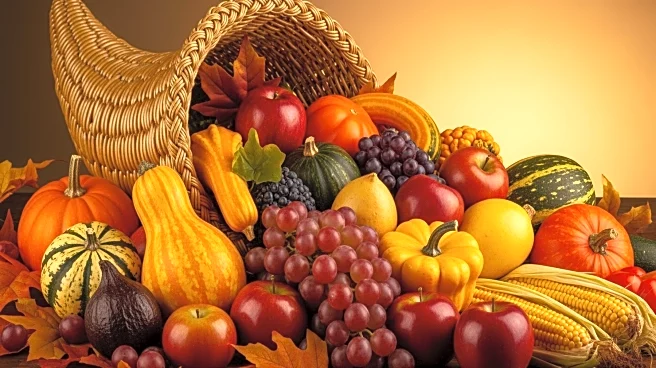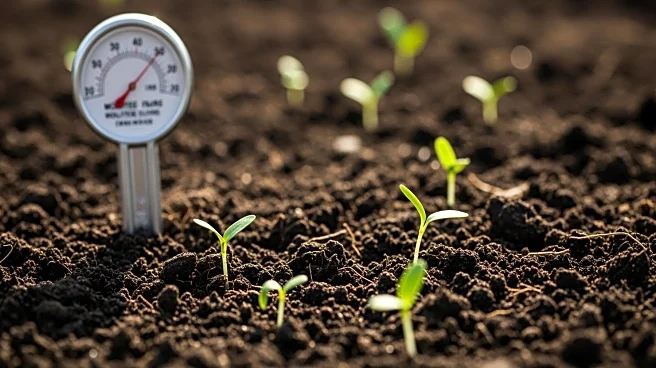What's Happening?
A worsening bird flu epidemic in the U.S. is expected to significantly increase turkey prices ahead of Thanksgiving. Approximately 3 million turkeys have died due to Highly Pathogenic Avian Influenza (HPAI)
this year, representing about 1.45% of the total U.S. turkey flock. This has led to a more than 26% increase in wholesale turkey prices compared to last year. The outbreak has intensified in recent months, with Minnesota and Ohio experiencing the highest losses. The U.S. turkey flock is at a 40-year low, with production expected to decrease by 5% from 2024.
Why It's Important?
The rise in turkey prices could impact consumer spending during the holiday season, as families face higher costs for traditional Thanksgiving meals. This situation highlights vulnerabilities in the U.S. poultry industry, which may need to address long-standing issues related to disease management and production practices. The economic impact extends to retailers and consumers, who may need to adjust their holiday plans and budgets in response to the price increases.
Beyond the Headlines
The bird flu outbreak raises questions about federal policies and industry practices that may have contributed to the spread of HPAI. Critics argue that the focus on profit over public health has led to conditions that facilitate the spread of the virus. There is a call for more stringent testing protocols and vaccination programs to prevent future outbreaks and protect both the poultry industry and consumers.








